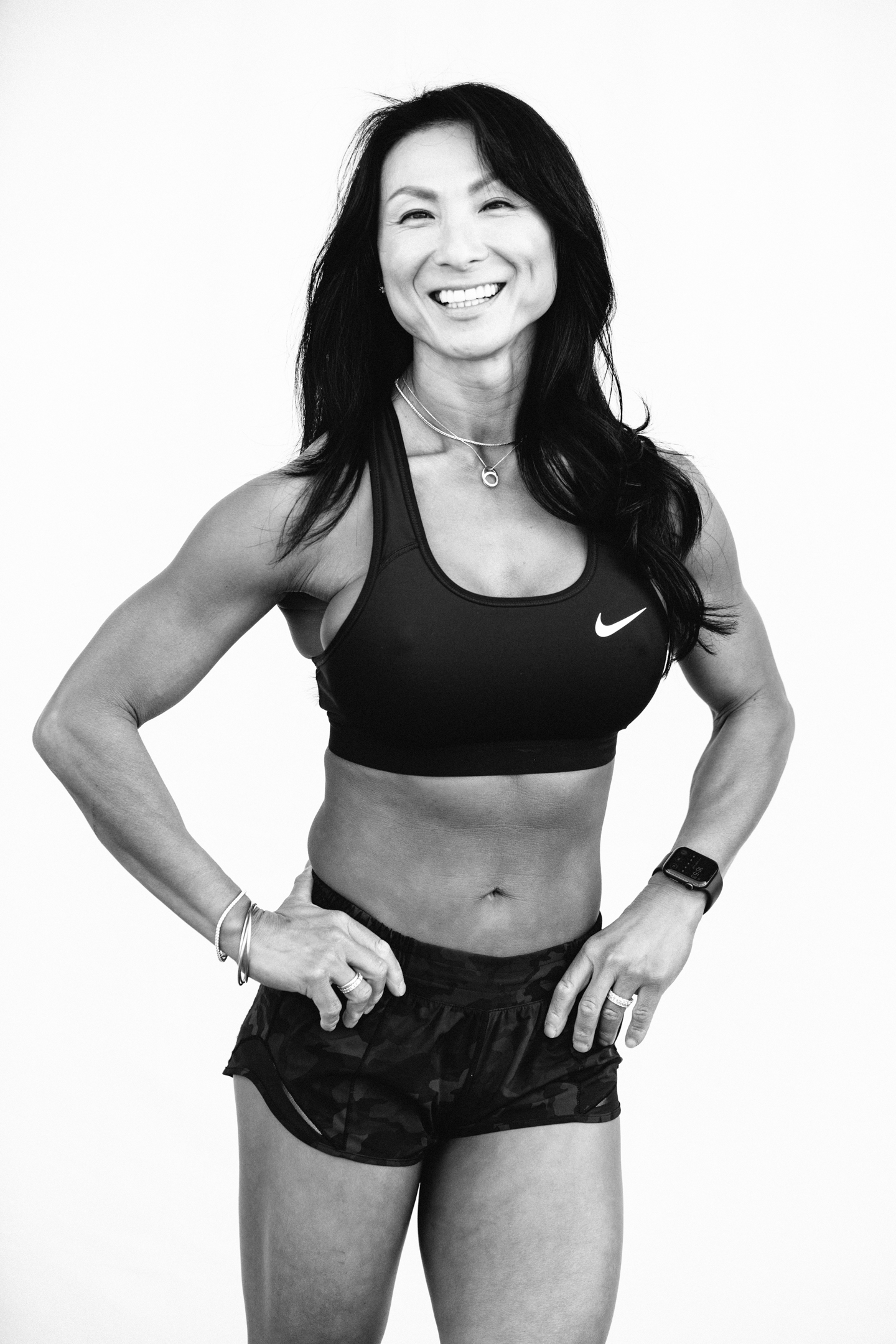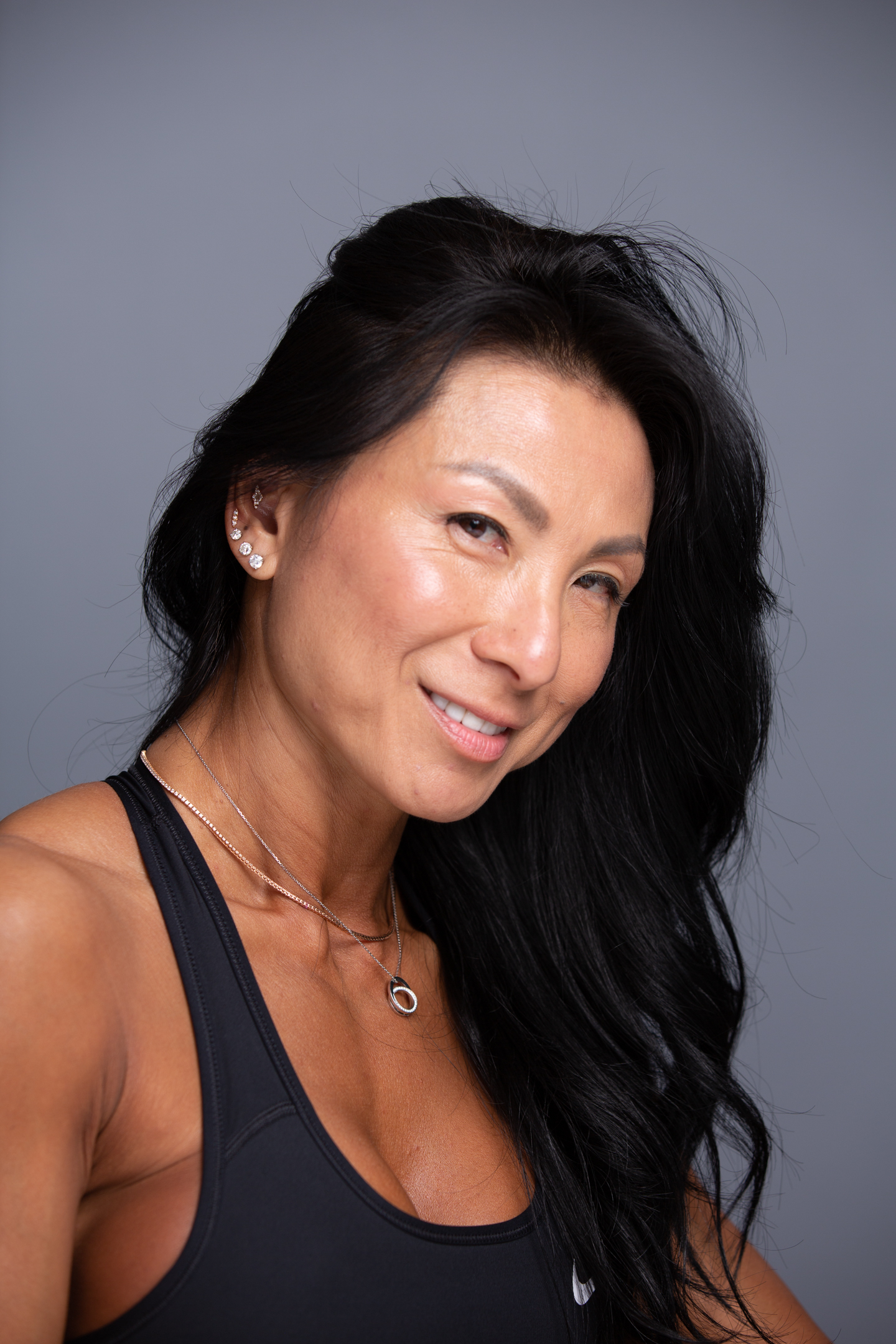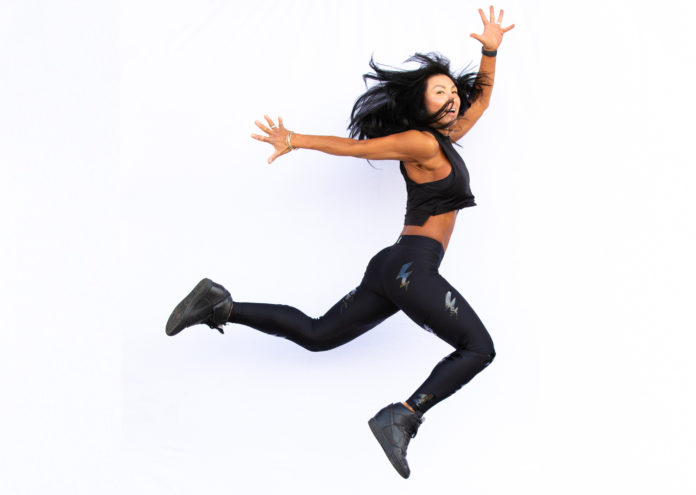Congratulations, you have decided you need to do strength training, but you are not sure how to start. We suggest you hire a professional to show you the ropes, get you to where you want to be, and prevent those over-50 injuries that can be slow to recover from.
There are a lot of people out there who call themselves trainers and, truthfully, the bar out there can be pretty low. Susie Lin is the best we have ever met, and we have seen quite a few. She is endlessly improving her knowledge base and skill set, while being relentlessly focused on her clients’ form. This is what you want. Not someone discussing the latest celeb gossip. Nope, you want a super pro who is obsessed with the minutia of physical training in the same way you would expect any other professional you would hire. We reached out to her to find out what her thoughts are on selecting a trainer, and how to work with one.

If someone comes to you and says that they don’t know what their goals are but they want a trainer, what do you tell them?
I ask them if there was a time in their lives when they felt phenomenal or they were really proud of the way that they looked or they felt on top of the world. Then I ask them what state of their physicality they were in at that point. Then we explore how they can recapture when they were feeling their best, and we get them back to that point.
How does someone evaluate a potential trainer?
Personally, I would do a re-con first. If you’re a member at a gym and you’re thinking about using one of their trainers, you can go into the gym and see how they interact with their current clients. If you’re watching someone and they’re looking away, looking at their phone, looking at their watch, or not really present, that’s the person you don’t want to be set up with. You want to make sure that the person you’re going to be meeting with is going to give you their undivided attention. You are paying with your time and money, and you want them 100% focused on you.
What are the credentials that someone should look for from a trainer?
Always make sure that they have a nationally accredited certification because then there’s a certain basic level of knowledge that a trainer has to have. Now, that’s the first thing. But second, you want to make sure that whatever goal you are going for that that trainer is well-knowledged in their ability to help you. For instance, if you need rehab help from a specific injury, you want to make sure they have deep experience with helping people in your circumstance.
“Trainers should always start at whatever level their client is coming to them at, not their age”
Does age impact someone’s exercise routine?
You can have someone that is 70 years old, super fit and athletic, but they realize that they’re starting to lose muscle mass and realize that they need to strengthen their body with new stressors. Or, you can have a very sedentary 50-year-old whose biological age is 70. Trainers should always start at whatever level their client is coming to them at, not their age. You want the trainer that you pick to tailor your workouts for you. And you should communicate this with your trainer so they know what your lifestyle is like and what your goals are.
As we get older, the muscle leaves faster and it’s harder to put it on. Do you have any techniques that you like to use for that?
I really, truly believe in moving and keeping constant tension on the muscles. It might not be through lifting the heaviest weights or resistance levels, but you just want to pull and push loads that are challenging to the muscles. It’s important that it is the volume of intensity over the volume of load. But as you get stronger, you should increase your load. When your body senses that you’re putting it under intelligent stress, it starts to produce more growth hormone (which is anabolic) to adapt to the new loads.
“I believe that a 10-minute warm-up is minimum”
Should we warm up before any type of exercise?
It’s actually very beneficial to prime the body, getting it ready to perform the motions that you’re about to execute. I believe that a 10-minute warm up is minimum. You can use a foam roller to loosen the muscle up and get a little more blood flow to tight or overactive areas of the body. Muscles will be more pliable and ready to work with the improved/increased blood flow. You can also do resistance band pull-aparts. Cat-Cow flexion and extensions of your spine. 10 minutes is the minimum of what you should do because the payouts from the warm up, in terms of an effective workout, are great.
What about a post-workout cool down?
Say you train for 45 minutes, the last 5 minutes can be something that tapers off the intensity, e.g. going a little lighter, perhaps slowing the movements down and lengthening the movements. Cool downs serve to calm your central nervous system and cortisol levels down so you can move through the rest of your day and not feel overly stimulated.
If someone is starting at 0, how can they get into working out?
If somebody has never lifted a weight or hasn’t worked out in years, I tell them to start with zone 2 aerobic training. They can get on a slightly inclined treadmill or elliptical mostly using their legs and get the body used to blood pumping and movement. An inclined treadmill will apply load to the muscles while also building up an initial aerobic capacity, which is important for all of us.

Once somebody starts strength training, how many times a week should they do it?
If you’re the type of person who has a lot of energy and you want to train in the mornings, I would recommend training minimum 3-4 times a week @ 45 minutes – 1 hour. Then, you can add some mini sessions @ 30min on your “off-days” to focus on some detail areas that you may want to target. Monday, Wednesday, and Friday can be full body 45-60 minute workouts and Tuesday and Thursday can be 20-30 minute targeting workouts. If you know yourself to have low/moderate energy levels, then I would focus on training 5 days per week @ 30min. As long as the routine is consistent, results will come.
“I just love recovery because I feel like that is your reward for all the hard work that you put in”
Once someone is into strength training, do they stop doing aerobic exercise or how do they balance that out?
It depends on how much that person is looking to lean out. If you’re comfortable with your body fat percentage and just want to be healthy, you can just do the aerobic training for the cardiovascular benefits maybe an hour on the weekends going for a hike or a swim or surfing. But, if you’re looking to see more definition, especially in your midsection, then you’ll want to add some HIIT training right after your resistance strength training. Even 10 minutes of intense HIIT training would be effective after your strength training.
How should someone recover in between workouts?
I just love recovery because I feel like that is your reward for all the hard work that you put in. Treat yourself! Take a nap if you have the time, go to bed early, do a cold plunge, ice bath, or sauna. The cold or hot are modalities that force your body to adapt and go back to homeostasis.
Connect with Susie on Instagram here.



I am a 68, soon to be 69 y/o woman. From my 20’s – 50’s I was super fit. I still remained fit until I contracted COVID-19 in Aug. 2020. I had forgotten how quickly we loose muscle strength. I have what seems to be Long COVID. I still work a demanding, stressful job, and have three more years before I can retire. My energy level has never been lower! My self esteem has plummeted. I need help to get my mojo back. We have a gym in our home with lots of good equipment. But I need someone to help me ‘jumpstart’ my motivation; to help me believe I can be fit again. How do I find this person or program. I have been trying, with little success.
Hi Paula,
Your COVID journey sounds challenging. My first thought is that you seek medical advice before beginning an exercise program. Finding a good trainer is important. Most will be associated with a gym or facility, and most will also work with people in their homes. If there are gyms in your area, they will probably give you a free 1 day pass to get you familiar with the place. Don’t bother with the 24 Hour Fitness gyms, they probably won’t have high level people working there. Use your time in the gym to scout for trainers. Who is really on their game? Then you can ask for their contact and take it from there. Then try them out at your home. If you can, see a few, its like dating. You want a good match. Hope that helps!
David
Thanks David. I am inspired by all the Ageist feature stories. I will start my search today. Regards, Paula
Great interview! I can see why Susie is such an incredible trainer- she relentlessly focuses on form (why workout if you aren’t doing it correctly?!) and she obsesses with the minutia of training. Too many trainers avoid it, but it is really the cornerstone of a productive workout. Looking forward to connecting with her.
I am 73 and overweight and out of shape! Name is Gary Johnson 612-432-9418